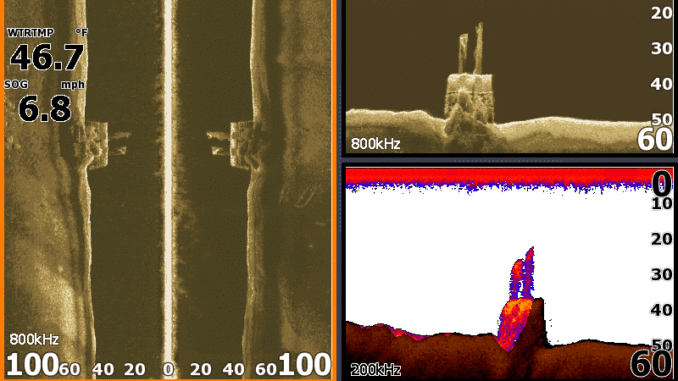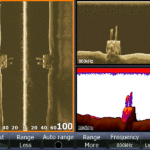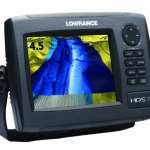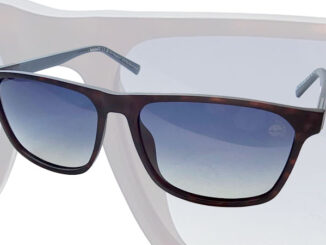
You can’t know too much about electronics
Whoever said that familiarity breeds contempt was not talking about their marine electronics. The plain and simple truth is that the better you know your electronics, the more they can do for you. As a “for instance,” I’m still learning about the side- and down-scanning features on the newer Humminbird and Lowrance sonar units. The features have been out for five or six years, yet I’ve noticed that there are still many fishermen who don’t seem to grasp how much help they can be.
I ambushed Humminbird Marketing Director Mark Gibson with a phone call as he was leaving to do a training session with Bass Pro Shops, and the same thing was on his mind. I asked him if he got the feeling fishermen were finally understanding how to use side- and down-imaging and how sales were going.
“I do see fishermen finally ‘getting it,’ but at the same time, as with any new product, I see guys buying them and they don’t have a clue about how to use them,” Gibson said. “They don’t understand what they’re seeing. They’ve never been to a class:
“If I could somehow magically have just a 30-minute educational meeting with every angler who was considering buying a fish finder and had the means to buy one of these, we would sell 300 million of them in a year. All it takes is 30 minutes in a boat with someone who knows how to use one and ‘boom,’ they have to have one.”
Gibson told me that it really helped when Lowrance came out with its form of side-imaging, Structure Scan, shortly after Humminbird introduced its side-imaging.
“At first we wondered, ‘Are we going to lose 50 percent of our sales?’ but the first year they came out with Structure Scan, our sales went up more than 20 percent,” he said.
He feels the Lowrance introduction meant that more people became aware of the technology, which grew the market enough for both companies to benefit.
So, we fishermen know the technology is available, we know it works, we know it can help us, but how do we get that magic 30 minutes of education that will open our eyes? Let me use myself as an example. I start by reading the owner’s manual from cover to cover even though I know it will only do me a limited amount of good. It tells me which buttons to press to turn the features on and off and adjust them. The book also gives me tips on how to set the feature up and where and when to use it.
But I need more help! Next, I go to the manufacturer’s website and look for tutorials, lessons and other hints about using the technology. I also look for company or third-party instructional DVDs that cover the way my particular model uses the technology. All this helps, but there is one other thing I do that is more valuable than all the other efforts combined, and that is the one-on-one instruction that Gibson was wishing for.
Yes, I’m lucky enough to get to go out in a boat with Gibson once in a while to get caught up on the latest tricks and tips, but that’s not what I’m talking about. There is a town or city near you that has annual boat shows or outdoor sport shows where fishing guides, pro tournament anglers and company people put on seminars to teach you how to use electronics. Any instructor worth his salt tells his audience he will be around for a while after the seminar (or be in a manufacturer’s display booth) and will be happy to walk you through anything you are having trouble understanding. The $5 or whatever it costs to get into the show is a small price to pay for that kind of one-on-one help.
If you have room in your budget for an occasional guided fishing trip, look around the exhibit booths at these shows for a guide who uses the brand of sonar unit that you are thinking about buying, and hire him for a day. Mention first thing in the morning that you are more interested in learning how to use the electronics than you are in catching fish, and you will leave the dock that evening a much more knowledgeable person.
Guides who are sponsored by an electronics company are almost always trained by factory people. These hard-working ladies and gentlemen make their living with their electronics, and you won’t find a better way to get no-nonsense, practical information on how to use them right on your local waters.
This idea isn’t limited to just sonar operation. If you want to learn to get the most out of a particular brand of GPS or radar, you can learn a lot about how a guide uses one every day. Finding a guide who uses the exact same model of unit that you want to buy isn’t absolutely necessary because the features, menus and controls are usually similar throughout a company’s product line. And don’t get so caught up in the button pushing that you forget to ask your expert-for-a-day why he does something in a particular way. It is as important to learn when, where and why as it is to learn how.




